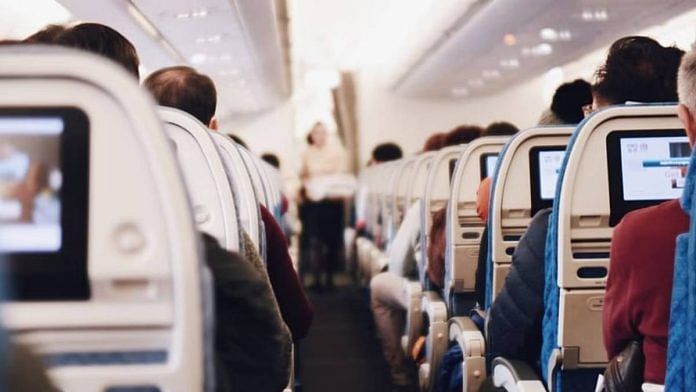New Delhi: Amid soaring airfares and calls for introducing fare caps on airline tickets, a senior aviation ministry official has said that fare caps on various sectors will lead to market distortion in a deregulated environment, and the benefits of market competition will not be available to passengers.
This comes at a time when Union minister of civil aviation Jyotiraditya Scindia last week told airlines to keep the maximum air fares along particular routes “within a certain limit”.
The official stressed that the rise in airfares has been mostly on select routes that were earlier being serviced by crisis-hit airline Go First.
“A meeting with airlines was held on June 5, 2023, where they were strictly advised to self-regulate fares on certain select routes that have seen considerable surge pricing of late,” the official said, adding that a mechanism for ensuring reasonable pricing will be devised by airlines.
Following the meeting, which was chaired by Scindia, the official said prices have seen a decline of up to 60 per cent.
“This is being monitored daily by the minister himself,” the official added.
Stating that under prevailing regulation, airfares are not regulated by the government and the aviation regulator Directorate General of Civil Aviation (DGCA) is also not empowered with the economic regulation of civil aviation and air transport, the official added that every air transporter is required to set tariffs keeping all relevant factors — cost of operation, characteristic of services, reasonable profit and the generally prevailing tariff, among others — in mind.
“Airlines are free to charge reasonable air fares as per their operation viabilities subject to compliance to above said rule,” the official said.
Also read: ‘Misguiding public’: House panel flags ‘predatory pricing’ by domestic airlines, seeks cap on fares
Fares slashed
The official also pointed out that globally, most countries have deregulated their aviation sector, which makes entry into the airlines industry for a potential new airline easier, thus increasing competition.
Additionally, the official added that airfares internationally have remained firm on account of various factors like opening of markets after the pandemic and the resultant surge in demand, rise in aviation turbine fuel (ATF) prices globally, and supply chain disruptions on account of both Covid and Ukraine-Russia conflict, among others.
As per the data from ministry of civil aviation, following the 5 June meeting, the fares for Delhi-Ahmedabad route decreased 56 per cent to Rs 3,896 for a ticket booked on 13 June for 20 June (seven days later) as opposed to Rs 8,885 on 5 June for a ticket for seven days later. Likewise, Delhi-Srinagar fares have fallen by 16 per cent, Delhi-Leh by 56 per cent, Mumbai-Delhi by 13 per cent, and Pune-Delhi by 17 per cent.
“Low fares are offered when tickets are booked 90 days, 60 days, 30 days, 15 days & seven days prior to departure. Under the immediate purchase, fares move to higher buckets as the lower ones get filled,” the official said.
(Edited by Zinnia Ray Chaudhuri)
Also read: Go First crisis could drive up airfares, be ‘silver lining’ for rival airlines



